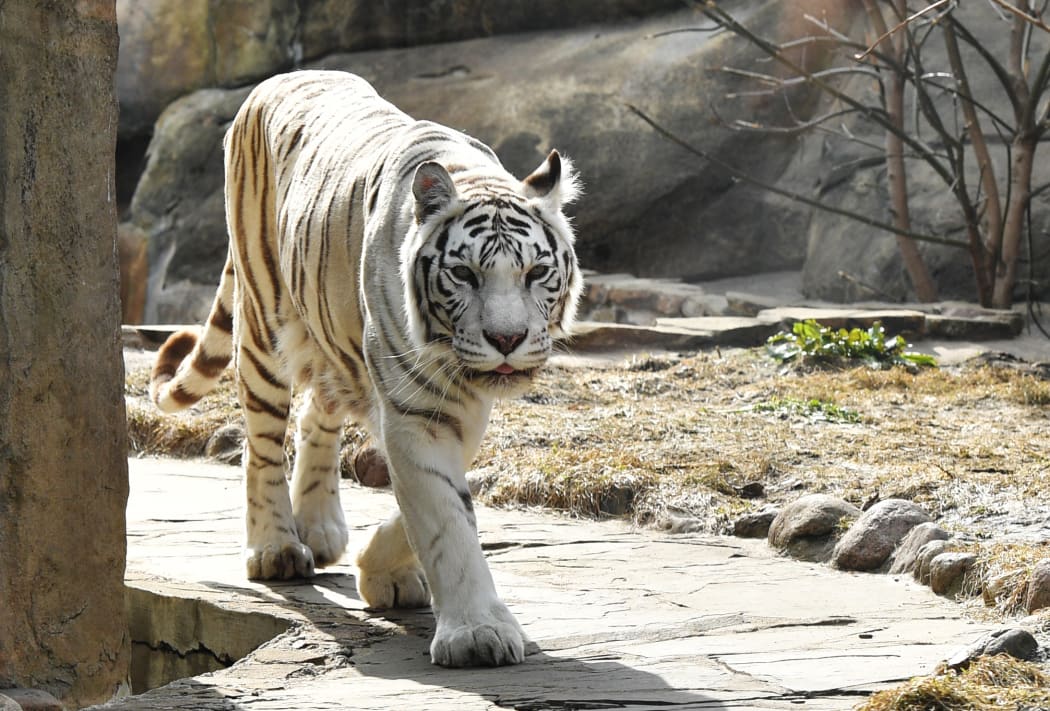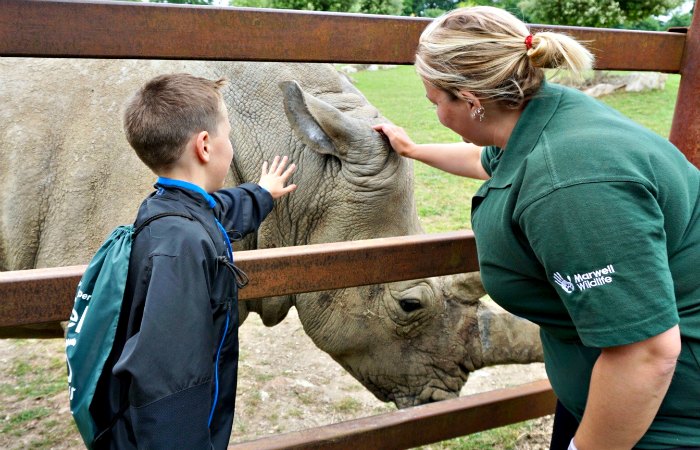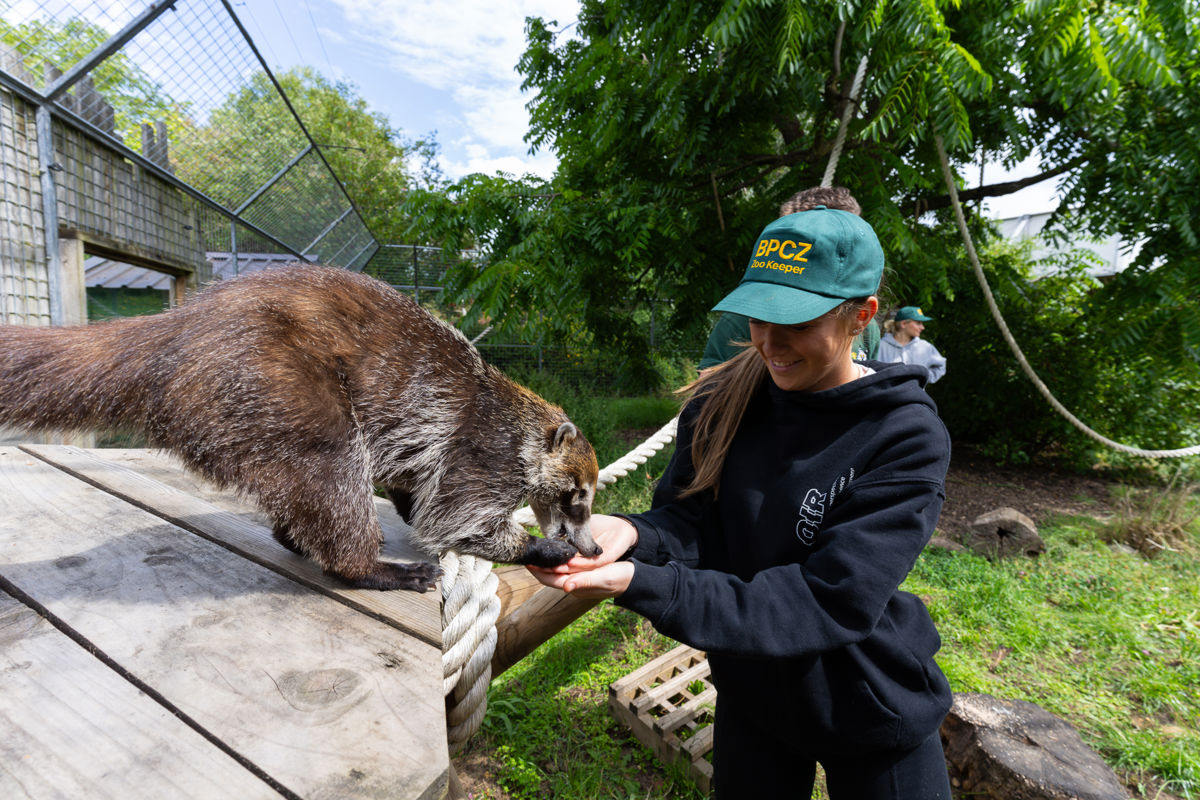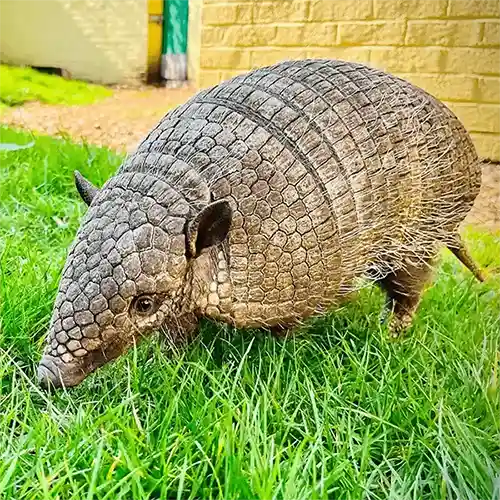How To Become A Zoo Keeper?
페이지 정보
작성자 Ben 작성일25-02-06 16:25 조회1회 댓글0건관련링크
본문

"The greatness of a nation and its ethical development can be evaluated by the way its animals are treated." - Mahatma Gandhi

Do you love animals and dream of working in a zoo? Zoo keepers are key in securing wildlife and caring for animals. At places like the Zoological Society of London (ZSL), over 20,000 animals get the care they require from experts.
To become a zoo keeper, you need effort, education, and a love for animals. This job is interesting, letting you work with lots of types and help with crucial preservation work. If you're into wildlife or animal welfare, zookeeping might be best for you.
Starting your zoo keeper profession indicates discovering what's required. This guide will cover education, experience, and more. It's all you need to know to begin a satisfying zookeeping profession.
Understanding the Role of a Zookeeper
Exploring what a zookeeper does exposes a role full of obstacles and rewards. They focus on animal welfare and preservation. Zookeepers work hard to keep animals healthy and pleased in their care.
Daily Responsibilities and Tasks
A zookeeper's day is filled with important tasks:
- Preparing meals that satisfy each animal's dietary needs
- Cleaning up enclosures to keep them tidy and safe
- Monitoring animal health and behaviour
- Providing medicines and treatments as needed
- Creating activities to keep animals psychologically sharp
Workplace and Conditions
Zookeepers work outside in all kinds of weather. They manage both indoor and outdoor spaces. The job requires being fit and able to deal with the needs of taking care of animals.

"Being a zookeeper is more than a job - it's a passionate commitment to animal care and conservation."
Types of Animals and Specialisations
Zookeepers can specialise in lots of animal groups:
- Primates
- Big cats
- Marine mammals
- Reptiles
- Birds
Your function might include working with 2-5 various animal species. This requires a great deal of understanding and the ability to adjust.
Important Skills and Personal Qualities for Zoo Keeping
To be a top zookeeper, you require more than just a love for animals. Your task will be difficult and require you to handle animals and individuals well. You'll likewise need to understand animal behaviour.
What zoos try to find in people consists of:
- Exceptional persistence and emotional strength
- Strong physical conditioning and endurance
- Keen observation skills
- Capability to remain calm under pressure
- High level of compassion towards animals
Getting hands-on experience is key to mastering this role. You'll need to reveal:
- Advanced understanding of animal care techniques
- Efficiency in animal handling and security procedures
- Reliable communication with both animals and human visitors
"An excellent zookeeper connects science, empathy, and preservation in every interaction with animals."
You need to know about animal nutrition, behaviour, and standard veterinarian care. The majority of zookeepers learn through training, offering, and continuous learning.
work is not just a task. It's a huge dedication to teaching about wildlife and assisting preservation. Your enthusiasm and effort will make you stand apart in this fulfilling profession.
How to Become a Zoo Keeper
Beginning a profession as a zookeeper needs cautious planning and education. You need to initially comprehend the instructional requirements and training paths. These will turn your love for animals into a job.
Educational Requirements
To be a great zookeeper, you require a strong academic base. The majority of tasks look for certain qualifications:
- At least 5 GCSEs at grade 4 or above, including English, maths, and science
- A levels or higher education qualifications
- A college degree in biology or animal science
- Level 3 Diploma in Animal Management
Required Certifications
Getting special certifications can actually assist you in your zookeeper career. Essential ones consist of:
- Diploma in Management of Zoo and Aquarium Animals (DMZAA)
- Zookeeping Level 3 Diploma (RQF)
- Animal managing certificates
- First aid credentials
Training Programs and Apprenticeships
Getting hands-on experience is type in zookeeper training. Many places use excellent chances:
- Unpaid apprenticeships at wildlife parks
- Internship programs at widely known zoos
- Practical training at locations like Colchester Zoo and Dartmoor Zoo
- Offering to get real-world abilities
Pro suggestion: Create an in-depth portfolio to show your animal care abilities. It will assist you in job applications.
Structure Relevant Experience in Animal Care
Getting hands-on experience is crucial for those wishing to be zookeepers. The task is extremely competitive. So, it's important to begin constructing a strong base in animal care.
Your journey begins with finding ways to work directly with animals. This is a strategic action.
"Experience is the very best teacher in animal care" - Wildlife Conservation Experts
Here are effective methods to gain experience working with animals:
- Volunteer at regional animal shelters to establish standard animal handling skills
- Look for internships at wildlife rehab centres
- Explore part-time positions at veterinary centers
- Contact your local zoo for possible volunteer chances
Volunteering is a terrific method to learn about animal behaviour and zookeeper care. Many zoos and animal shelters are searching for individuals who wish to find out. These places use terrific possibilities to get hands-on experience and reveal your devotion to animal welfare.
Here are some ideas to make the most of your experience:
- Keep a record of your abilities and interactions
- Get in touch with experts in animal care
- Request referrals and recommendation letters
- Stay relentless and show your real enthusiasm
Keep in mind, practical experience makes you stand out in the zookeeping world. Every time you work with animals, you discover more. This increases your possibilities of getting a job in animal care.
Profession Pathways and Professional Development
Starting a profession as a zookeeper is amazing. It provides many opportunities to grow and specialise. Your journey begins with understanding the various courses in this field.

Entry-Level Positions
Entry-level tasks in zookeeping are a great start. They offer you hands-on experience. Zoos search for prospects with:
- Level 2 Diploma in Animal Care (minimum certification)
- GCSEs in English and a scientific topic
- Volunteer experience at animal shelters or farms
Profession Progression Opportunities
As you acquire experience, your profession can grow. You can move up to:
- Junior Keeper
- Senior Keeper
- Team Leader
- Specialist Roles
"Continuous knowing and useful experience are key to advancing in your zookeeping career."
Specialised Roles
You can likewise pick unique locations like:

- Conservation breeding programmes
- Animal training
- Wildlife research
- Educational outreach
About 25% of zookeepers get advanced degrees in zoology or animal conservation. Getting Level 4 qualifications can improve your opportunities for senior roles and research study.
Working Hours and Physical Demands
Ending up being a zookeeper implies you'll work more than just routine hours. You'll face hard physical challenges and need to be versatile, consisting of weekends and holidays. Zoos are open every day, zookeeper so you'll frequently work when others relax.
"Zoo keeping is not a typical 9-to-5 job-- it's a lifestyle of devoted animal care and dedication."
This task is physically demanding. You'll work outside in any weather, zookeeper lifting heavy products over 50 pounds. Your jobs may include:
- Early morning feeding schedules
- Cleaning up animal enclosures
- Preparing specialised diet plans
- Performing health checks
- Maintaining intricate habitats
Shifts can begin as early as 5 AM and go late into the night. You'll be on your feet most of the time, moving in between animal zones. Weekends and holidays become part of the job, requiring lots of endurance and devotion.
Despite the challenges, this task has fantastic rewards. You'll grow strong, both physically and emotionally. You'll likewise make remarkable connections with amazing animals.
Health and Safety Considerations
Being a zookeeper includes its own set of challenges. It's crucial to know how to keep both animals and staff safe. This implies following strict health and safety guidelines.
Zookeepers deal with a distinct environment where safety is crucial. Studies reveal that health and safety are now as crucial as the zoo's primary work.
Danger Management Strategies
There are numerous ways to handle risks in zoos:
- Daily checks of animal enclosures for threats
- Counting animals at the start and end of shifts
- Watching how visitors act near animals
- Being ready for emergency situations
Animal Handling Safety Protocols
Understanding which animals are most hazardous is crucial. Huge animals like rhinos can be very dangerous. There have actually been cases where zookeepers got seriously hurt.
Safety isn't practically wearing gear - it's about understanding animal behaviour and staying alert.
Individual Protective Equipment
Zookeepers need to wear the ideal gear, consisting of:
- Special gloves for handling animals
- Strong shoes for grip and security
- Clothes that safeguards against bacteria
Getting immunized against illness like liver disease B and rabies is likewise crucial. It helps keep zookeepers healthy in their tough job.
Income Expectations and Job Market
Thinking about a profession in zoo keeping? It's important to understand about wages and the job market. The field is growing, with more opportunities in the UK.
Let's take a look at what zoo keepers can make at different phases:
- Entry-level zookeepers begin at about ₤ 14,000 a year
- Qualified ones make between ₤ 16,000 and ₤ 22,000
- Senior zookeepers can earn as much as ₤ 30,000 or more
The task outlook for zoo keepers is great. The sector is expected to grow by 5% in the UK by 2029. This indicates around 3,910 brand-new jobs will be offered.
"The Association of Zoos and Aquariums supports professional growth for zoo keepers," a report states.
Incomes vary based upon numerous things:
- Experience level
- Expertise
- Where you work
- The zoo's size and type
While the pay might not be high, the pleasure of dealing with animals is priceless. The average salary is around ₤ 17,000. But, total profits can be between ₤ 13,000 and ₤ 27,000 a year.
Conclusion
Starting a career in animal care is an exciting journey. It requires dedication, passion, and a love for knowing. With over 350 zoos and wildlife locations in the UK, there are numerous job opportunities. You'll get to work with amazing animals and assist secure wildlife.
To be a zoo keeper, zookeeper you require more than just love for animals. You must have a mutual understanding of biology, be able to interact well, and always want to learn more. You'll gain hands-on experience, learn about animal welfare, and zookeeper establish a deep regard for nature. About 3,000 individuals in the UK have actually found fulfilling careers in this field.
Your success in zoo keeping originates from blending science with a love for animals. Whether you're interested in mammals, birds, zookeeper or marine life, this task lets you assist with preservation. Every day will bring brand-new obstacles and discovering chances that will enhance your skills and knowledge.
If you love animals and want to assist secure wildlife, zoo keeping might be for you. Handle the difficulty, stay curious, and turn your enthusiasm for animals into a rewarding career.

